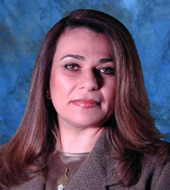Summary
Definition
History and exam
Key diagnostic factors
- creamy white or yellowish plaques, fairly adherent to oral mucosa
- burning oral pain
- cracks, ulcers, or crusted fissures radiating from angles of the mouth
Other diagnostic factors
- unpleasant taste in the mouth
- lesions on any part of the oral mucosa
- atrophic, fiery red, flat lesions on the palate
- patchy areas of loss of filiform papillae on the dorsum of the tongue
- spotty red areas on the buccal mucosa
- lesions confined to the outline of a dental prosthesis
- dysphagia or odynophagia
- rhomboid outline on the dorsal aspect of the tongue
- continuous or patchy band of erythema, involving the free gingival margin
Risk factors
- hyposalivation/xerostomia
- poor oral hygiene, especially among denture wearers
- malabsorption and malnutrition
- advanced malignancy
- cancer chemotherapy and radiotherapy
- HIV infection
- endocrine disturbance (e.g., diabetes mellitus, hypoparathyroidism, pregnancy, hypoadrenalism)
- immunosuppressive agents (e.g., local or systemic corticosteroid therapy)
- current or recent past use of broad-spectrum or multiple narrow-spectrum antibiotics
- extremes of age
- high carbohydrate diet
Diagnostic investigations
1st investigations to order
- superficial smear of lesion for microscopy
Investigations to consider
- biopsy of lesion
- culture of mouth rinse sample
- upper GI endoscopy with or without biopsy of lesions
- urinalysis, random or fasting blood glucose, or glucose tolerance test to exclude diabetes
- HIV antibody test
- sialometry
- electrolyte panel
Treatment algorithm
oral candidiasis
angular cheilitis
severely immunocompromised: prophylactic-therapy
Contributors
Authors
Fariba S. Younai, DDS

Professor of Clinical Dentistry
Chair, Division of Diagnostic & Surgical Sciences
UCLA School of Dentistry
Los Angeles
CA
Disclosures
FSY declares that she has no competing interests.
Peer reviewers
Joan A. Phelan, DDS
Chair of Department of Oral Pathology
New York University College Of Dentistry
New York
NY
Disclosures
JAP declares that she has no competing interests.
Giuseppina Campisi, DDS, PhD
Professor of Oral Medicine
Department of Oral Sciences
University of Palermo
Palermo
Italy
Disclosures
GC declares that she has no competing interests.
Peer reviewer acknowledgements
BMJ Best Practice topics are updated on a rolling basis in line with developments in evidence and guidance. The peer reviewers listed here have reviewed the content at least once during the history of the topic.
Disclosures
Peer reviewer affiliations and disclosures pertain to the time of the review.
References
Key articles
National Institutes of Health, Centers for Disease Control and Prevention, HIV Medicine Association of the Infectious Diseases Society of America. Guidelines for the prevention and treatment of opportunistic infections in adults and adolescents with HIV: Candidiasis (mucocutaneous). 2020 [internet publication].Full text
Pappas PG, Kauffman CA, Andes DR, et al. Clinical practice guideline for the management of candidiasis: 2016 update by the Infectious Diseases Society of America. Clin Infect Dis. 2016 Feb 15;62(4):e1-50.Full text Abstract
Reference articles
A full list of sources referenced in this topic is available to users with access to all of BMJ Best Practice.

Differentials
- Chemical burns
- Reactive keratosis
- Hairy leukoplakia
More DifferentialsGuidelines
- Guidelines for the prevention and treatment of opportunistic infections in adults and adolescents with HIV: Candidiasis (mucocutaneous)
- Guidelines for the prevention and treatment of opportunistic infections in children with and exposed to HIV: Candida infections
More GuidelinesPatient information
Oral thrush: what is it?
Oral thrush: what are the treatment options?
More Patient informationLog in or subscribe to access all of BMJ Best Practice
Use of this content is subject to our disclaimer